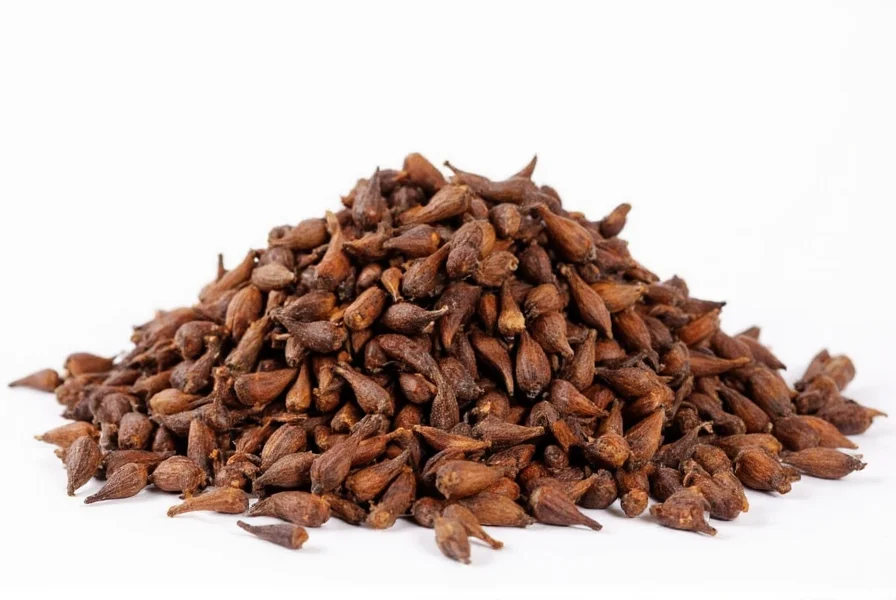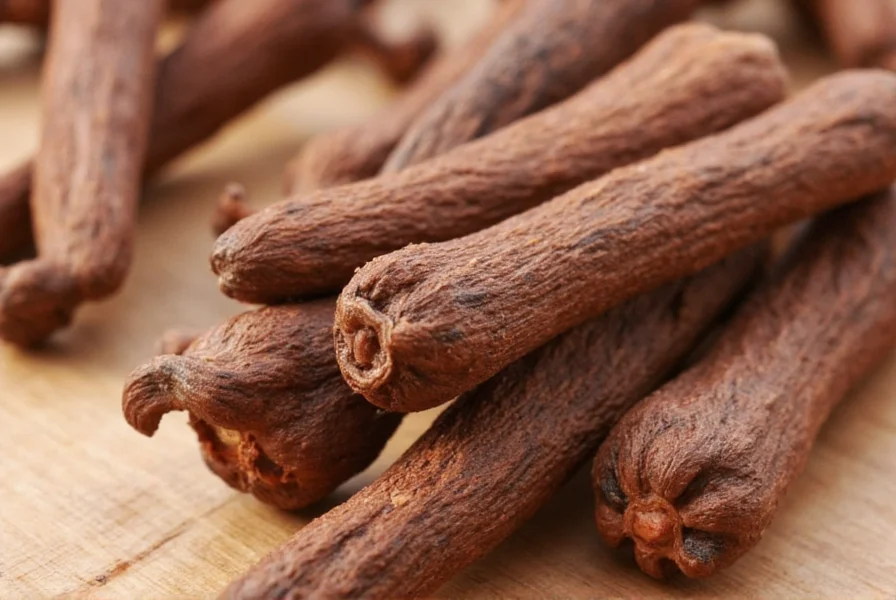Cloves, the aromatic flower buds of the Syzygium aromaticum tree, have been valued across cultures for centuries not just as a culinary staple but for their remarkable therapeutic properties. Originating in the Maluku Islands of Indonesia, these small but potent spices contain eugenol, a bioactive compound that constitutes 70-90% of clove essential oil and drives many of their scientifically supported benefits.
The Science-Backed Benefits of Cloves
Dental Health Applications
When exploring what is clove good for in modern dentistry, the most well-documented application is for temporary toothache relief. Eugenol's analgesic and antiseptic properties make clove oil an effective natural remedy for dental pain. A 2018 study published in the Journal of Dentistry demonstrated that clove gel provided comparable pain relief to benzocaine in patients with dental pain. Dental professionals sometimes use eugenol in temporary fillings and root canal treatments due to its antimicrobial effects against common oral pathogens.

Antioxidant Powerhouse
Cloves rank among the highest antioxidant-rich foods according to ORAC (Oxygen Radical Absorbance Capacity) measurements. Research shows cloves have 30 times more antioxidants than blueberries. These compounds combat oxidative stress, which contributes to chronic diseases and aging. The primary antioxidants in cloves—eugenol, kaempferol, and rhamnetin—work synergistically to neutralize free radicals and reduce inflammation throughout the body.
Digestive Health Support
Traditional medicine systems have long utilized cloves for digestive issues, and modern research provides some validation. Studies indicate that clove extract may stimulate digestive enzyme production and improve gastric motility. When addressing what are cloves used for in traditional medicine, their role in relieving nausea, bloating, and indigestion features prominently. The carminative properties help reduce gas formation, while antimicrobial effects combat harmful gut bacteria without disturbing beneficial flora.
| Primary Bioactive Compound | Concentration in Cloves | Key Health Benefits |
|---|---|---|
| Eugenol | 70-90% | Antimicrobial, anti-inflammatory, analgesic |
| Beta-caryophyllene | 5-15% | Anti-inflammatory, gastroprotective |
| Vitamin C | Significant amounts | Immune support, antioxidant |
| Manganese | High concentration | Bone health, metabolism regulation |
Respiratory Benefits
When considering what is clove good for respiratory health, research shows promising results. Clove compounds exhibit expectorant properties that help clear mucus from airways. The anti-inflammatory effects can soothe irritated respiratory tissues, while antimicrobial properties combat pathogens causing respiratory infections. Traditional preparations often involve inhaling steam with clove oil to relieve congestion from colds or sinus infections.
Culinary Versatility Beyond Flavor
While many search for what are cloves used for in cooking, their benefits extend beyond mere flavor enhancement. Cloves act as a natural food preservative due to their antimicrobial properties. When added to dishes, they not only provide distinctive flavor but also contribute antioxidant protection that may help reduce oxidative damage during digestion. In traditional food preservation methods across Asia and the Middle East, cloves were used to extend the shelf life of meats and other perishables.
Practical Applications: How to Use Cloves Effectively
Clove Oil for Targeted Relief
For dental applications, dilute clove oil with a carrier oil (1 part clove oil to 5 parts coconut or olive oil) and apply to the affected area using a cotton swab. Never apply undiluted clove oil directly to gums or skin, as it can cause irritation. For respiratory benefits, add 2-3 drops of properly diluted clove oil to steam inhalation.
Safety Considerations and Potential Side Effects
While cloves offer numerous benefits, understanding what is clove good for and its limitations is crucial. Excessive consumption can cause:
- Oral tissue irritation or damage
- Bleeding complications (due to eugenol's blood-thinning effects)
- Liver toxicity in high doses
- Allergic reactions in sensitive individuals
Children, pregnant women, and individuals with bleeding disorders should consult healthcare providers before using clove medicinally. The FDA recognizes clove as generally safe for culinary use, but therapeutic applications require more caution.
Scientific Evidence vs. Traditional Claims
When evaluating health benefits of clove oil, it's important to distinguish between well-supported benefits and traditional claims needing more research. Strong evidence exists for:
- Antimicrobial effects against oral pathogens
- Antioxidant capacity
- Anti-inflammatory properties
Promising but less conclusive research exists for:
- Blood sugar regulation
- Liver protection
- Anticancer properties (primarily in vitro studies)
Many traditional uses lack rigorous clinical trials but show potential for future research.
Conclusion: Balanced Perspective on Clove Benefits
Cloves offer remarkable benefits supported by both traditional use and modern science, particularly for dental health, antioxidant protection, and digestive support. When considering what is clove good for, it's essential to recognize cloves as a complementary approach rather than a replacement for medical treatment. Their effectiveness for temporary toothache relief and as a dietary source of antioxidants makes them valuable additions to natural wellness practices when used appropriately and with awareness of potential limitations.
Can cloves really help with toothache?
Yes, cloves can provide temporary toothache relief due to eugenol's analgesic and antiseptic properties. Research shows clove oil can be as effective as benzocaine for short-term dental pain. Apply diluted clove oil (mixed with carrier oil) to the affected area using a cotton swab, but remember this is temporary relief—consult a dentist for persistent pain.
What's the difference between whole cloves and clove oil for health benefits?
Whole cloves provide milder benefits suitable for culinary use and gentle digestive support. Clove oil contains concentrated eugenol (70-90%), making it more potent for therapeutic applications like dental pain relief, but requires dilution to prevent tissue irritation. For most health applications beyond cooking, properly diluted clove oil delivers more targeted benefits.
Are there any risks associated with using cloves medicinally?
Yes, potential risks include oral tissue irritation from undiluted oil, increased bleeding risk due to eugenol's blood-thinning effects, and possible liver toxicity with excessive consumption. Children, pregnant women, and those with bleeding disorders should use caution. Always dilute clove oil before topical application and consult healthcare providers before using cloves medicinally if you have health conditions or take medications.
How do cloves compare to other antioxidant-rich spices?
Cloves rank among the highest antioxidant spices according to ORAC measurements. Research shows they contain approximately 30 times more antioxidants than blueberries. While turmeric and cinnamon also offer significant antioxidant benefits, cloves' unique combination of eugenol, kaempferol, and rhamnetin provides distinctive protective effects against oxidative stress and inflammation.
Can cloves help with digestive issues?
Yes, cloves have demonstrated digestive benefits. Studies indicate clove extract may stimulate digestive enzymes and improve gastric motility. Their carminative properties help reduce gas formation, while antimicrobial effects combat harmful gut bacteria. Traditional preparations often involve chewing whole cloves after meals to aid digestion and freshen breath, though those with sensitive stomachs should use moderation.











 浙公网安备
33010002000092号
浙公网安备
33010002000092号 浙B2-20120091-4
浙B2-20120091-4